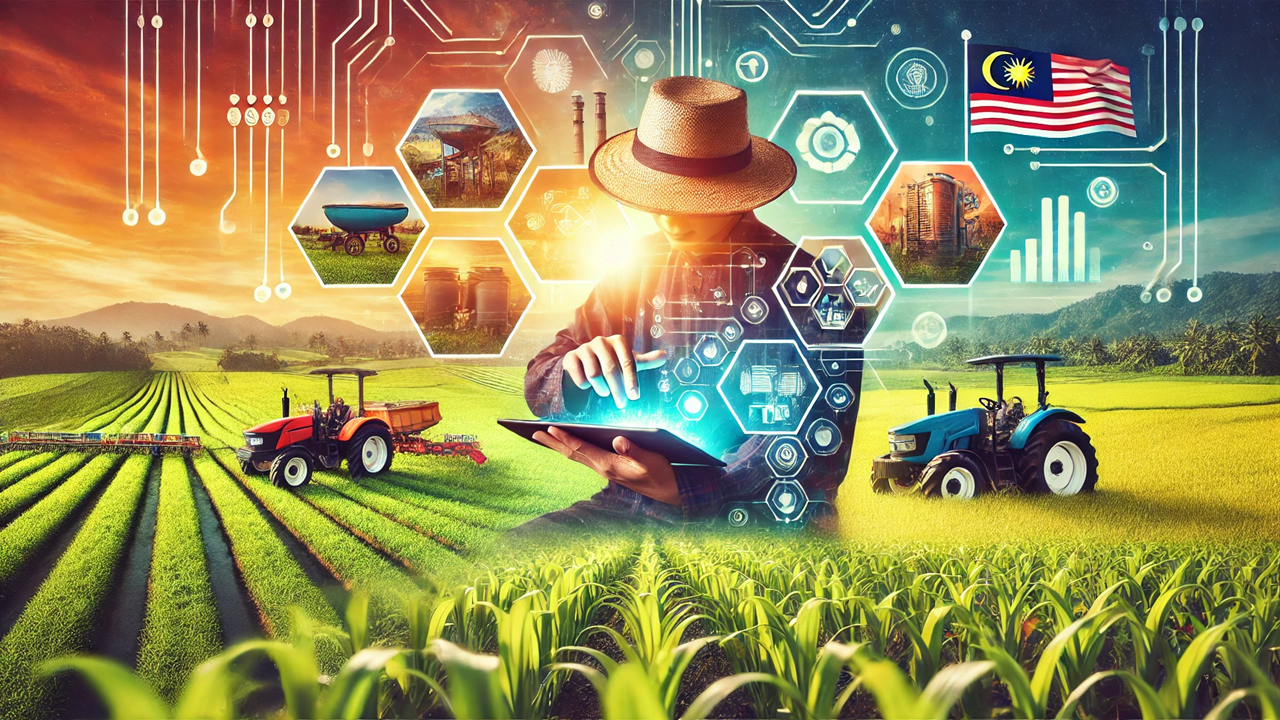How Digital Tech is Shaping Malaysia's Agrofood Future
A World Bank report reveals how digital technology can transform Malaysia's agrofood sector, addressing key challenges and paving the way for sustainable growth and enhanced resilience.

In a comprehensive report titled "Farming the Future: Harvesting Malaysia’s Agricultural Resilience through Digital Technologies," published by the World Bank, Malaysia's economic growth and the pivotal role of its agro-food sector take center stage. The analysis highlights how digital technology could be the transformative force driving the nation’s agricultural evolution toward a more sustainable, productive, and resilient future.
A Strong Economy with Agricultural Roots
The report underscores Malaysia’s robust economic performance in 2024, marked by significant private consumption, investment influx, and an uptick in exports. Agriculture, contributing 11.6% to the national GDP and employing 10% of the workforce, is a critical engine of this growth. Yet, Malaysia aspires to shift its agricultural practices from traditional methods to modern, data-driven processes to achieve high-income status.
Challenges Facing the Agrofood Sector
However, the report is not without pointing out critical challenges. Productivity gaps, market competition obstacles, and sluggish adoption of advanced technology weigh on the sector. Coupled with these are persistent rural poverty and the pressing need for environmental sustainability. Malaysia’s policy history of supporting rice production with subsidies and protections has inadvertently kept broader agricultural modernization at bay. To pivot toward a higher-income economy, substantial shifts in policy and practice are essential.
The Promise of Digital Agricultural Technologies
Digital Agricultural Technologies (DATs) present an exciting opportunity to tackle these challenges head-on. The report details how DATs could revolutionize Malaysian agriculture by enhancing productivity, cutting costs, and boosting export competitiveness. Precision farming and AI-enabled solutions promise more efficient use of resources, better crop management, and predictive analytics for increased yields. The use of DATs can bridge the growing gap between food supply and demand while supporting climate resilience and sustainability.
Key Recommendations for Success
For Malaysia to harness the potential of DATs, strategic actions are necessary. The report advocates for:
Investment in public goods: Expanding digital literacy, strengthening rural internet connectivity, and supporting essential infrastructure to bridge the digital divide.
Fostering an innovation ecosystem: Establishing data-sharing platforms, nurturing AgTech startups, and facilitating business growth for tech providers.
Regulatory focus: Enhancing data governance and cybersecurity to protect agricultural data and promote responsible technology use.
Inclusive growth: Ensuring smallholder farmers, including women, gain access to information and resources that facilitate DAT adoption.
A Strategic Path Forward
A clear three-pillar approach is recommended to support this digital evolution: investing in foundational public resources, stimulating an innovative tech ecosystem, and fostering an enabling environment with supportive policies. The success of these initiatives hinges on collaboration between the public and private sectors to create sustainable growth. The report firmly posits that government expenditures should focus on public goods that catalyze private-sector innovation rather than direct funding of private interests.
In conclusion, "Farming the Future: Harvesting Malaysia’s Agricultural Resilience through Digital Technologies" by the World Bank emphasizes that digital transformation in agriculture is more than just an opportunity—it’s a necessary evolution to secure Malaysia’s future as a sustainable, high-income nation.
- FIRST PUBLISHED IN:
- Devdiscourse
ALSO READ
West Bengal's Strategic GST Amendments: A Catalyst for Economic Growth
Chouhan Champions Agricultural Diversification for Economic Growth
FICCI's Optimistic Outlook for India's Economic Growth Amid Global Challenges
Chhattisgarh's Bold Strides: Eradicating Naxalism and Boosting Economic Growth
Navigating Economic Growth Amid Trade War Threats










